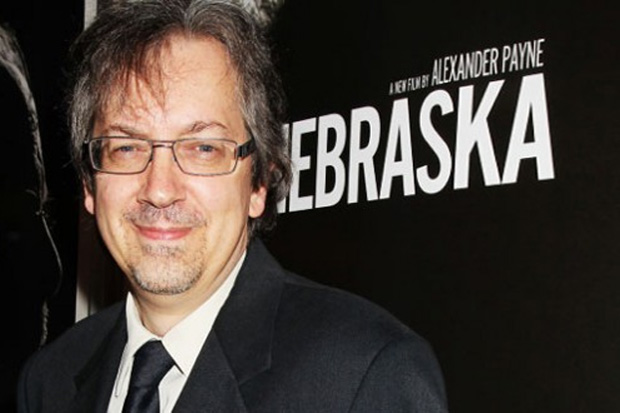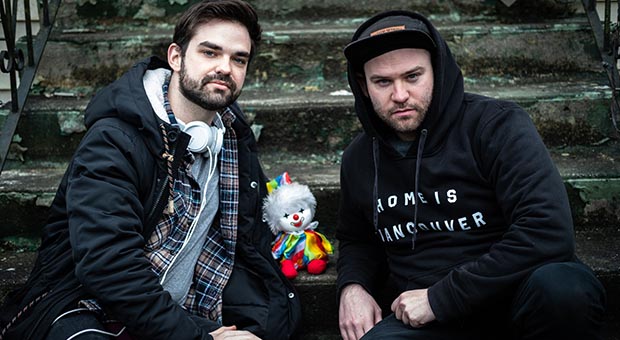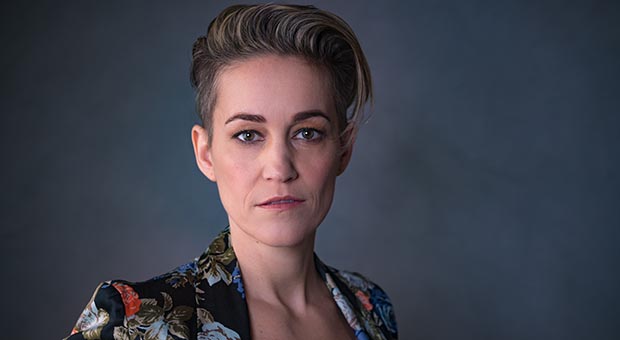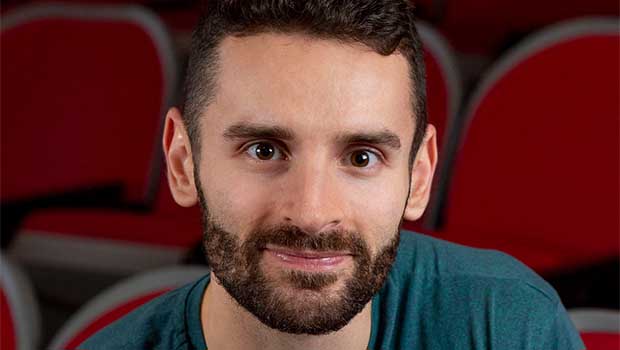
30 Nov The Biz Interview: Bob Nelson – Writer of “Nebraska”
Bob Nelson is the screenwriter of Alexander Payne’s new film, Nebraska which opened on Friday and had its Canadian premiere as the opening night film of the 2013 Vancouver International Film Festival.
We spoke with Bob to find out more about the film, his beginnings as a screenwriter, and his advice to aspiring writers in pursuing their own goals.

Where did your inspiration come from for the story?
For the story about [Bruce Dern and Will Forte] going to collect the sweepstakes, that came from hearing about that actually happening – that people – especially senile or Alzheimer’s – actually did show up at sweepstakes offices. I had heard about that and thought well that might make for an interesting screenplay someday. I thought of a father-son and I thought well, if the son has to take his father to show him he didn’t win and get this over with, that might make [for] an interesting independent road movie. The thought of them just bickering and fighting the whole way and having these emotional outbursts and then reconciling, I just didn’t think that was enough.
So I kind of waited a while until I came up with the story of them going to the dad’s hometown and that’s where the other part of it clicks in because a lot of that’s informed by my own experiences and growing up in a family that came from Nebraska. Both my dad and mom grew up in Hartington, Nebraska – they both had big families, so I had a lot of aunts and uncles as it’s depicted in the movie – and even though I grew up in the Seattle area, we would go back every once in a while and visit my relatives and some lived in the small towns, but we still had quite a few who were farmers… So I’ve taken many liberties with all of this – for instance, the Woody character is inspired by my dad, but it’s not exactly my dad. Woody’s more cantankerous and a little bit more terse, but my dad was a mechanic and he was a really nice guy who was taken advantage of a lot and had his tools stolen and one time had his very nice compressor that he’d even built a rolling cabinet for that he would hook to the back of his truck. Someone borrowed that and never brought it back… It helped inspire me to take little facts like that and turn them into a screenplay.
In creating the script vs. seeing how it turned out on film, is there anything that especially surprised you when you saw it on film?
The surprises were almost all delightful surprises. You write something on the paper, but it takes those actors to turn them into real people. So that to me, it was like watching it all over again. It’s like a whole new experience and I loved it. Bruce Dern is amazing and Will Forte what he brought to it, June Squibb, and the fact that we got Bob Odenkirk in there, and Stacy Keach who’s a legend to come and play Ed. To me, Alexander (Payne) was very faithful to the story that I wrote. He did do his own rewrite of the script. He did a polish and added a lot of nice things, so I got to be surprised when he did his pass on the screenplay… There are so many things that can go wrong in movies because there are so many moving parts and there’s people involved, but when you collaborate with really good people, it takes what you’ve done to a higher level.

How did you get started with writing?
It was kind of out of desperation. I had done radio comedy in college. Then I became a radio producer, but when I lost that job, I couldn’t find a job and I ended up taking classified ads at The Seattle Times. I hit 30 years old and I thought, “If I’m ever going do anything, I think I’d better start figuring out how to get there.”
It just so happened that around that time, a show started in Seattle – a local comedy show called Almost Live – and the first five years of it, it was like a local David Letterman, where there would be interviews and then comedy bits. Well, in 1989, when I started sending material to them and the producer hired me, the show switched over to a half-hour sketch-only format, and they moved the show to Saturday nights at 11:30 on the NBC affiliate and moved Saturday Night Live back to midnight. So I guess that’s a roundabout way of saying that I always wanted to be a writer, but never really got up the courage and always wanted to do comedy, but that I had let that slip through my hands, but because of this show that they started in Seattle, I saw a way to get back into that. I mean I grew up loving comedy. I loved Bob Newhart. I grew up on Monty Python and Woody Allen movies. So I had this love for it, but I didn’t know that I could do it or not. So Almost Live gave me an opportunity to find out if I could and to really develop that comedy sense and timing.
What advice would you give to aspiring screenwriters out there?
When I first wrote this, there weren’t many screenplays you could get your hand on… but nowadays you can find screenplays online, you can buy them in stores. I would suggest if you need to, you can read one or two books if you want to learn the structure of screenplays because there is a very specific structure that you probably don’t want to break until you’ve made it and then you can mess around with it. Otherwise the people in the industry think you don’t know what you’re doing. So to learn the structure, it’s a very specific type of writing because you’re trained to write what would normally be the story of a novel in the space of a short story. So you have to be precise. You have to make every word count and every scene count and that’s the mistake I see most first-time writers having. They have a lot of stuff that could be cut out if they thought about it. But beyond that, read every screenplay you can because if you just read them, something will well be absorbed. You’ll see the economy at work. You’ll see that even in your favorite movies that you think are great, if you read the screenplay, you can kind of see the mechanics behind it all and you can also see well, it wasn’t necessarily this piece of genius, but it had the places in part, the characters, and some of the dialogue, and the story worked out, but then it took all of these other people – say if you have a director like Alexander Payne and the actors we have on Nebraska – to really bring it to life. But reading the screenplays would be the first thing I would do now.
Nebraska is now playing in theatres.






